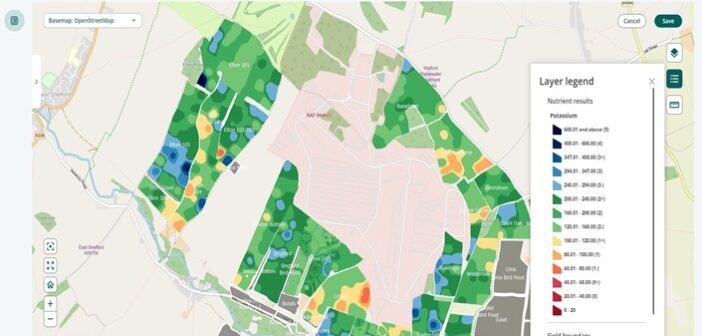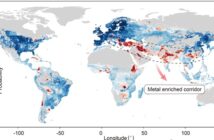Frontier Agriculture has signed a new partnership with Esri UK, enabling it to create advanced geospatial solutions for the UK farming industry. By providing a better understanding of location data across the entire lifecycle of food production, the collaboration aims to tackle some of the major challenges facing arable farming today, including how to become more resilient and sustainable.
The 3-year Managed Cloud Service agreement will give Frontier access to the Esri ArcGIS system, allowing it to embed the technology into existing applications and build innovative new solutions, delivering the benefits of taking a more geographic approach to its 14,000+ farmer customer base. Priorities will include connecting disparate parts of the food production process, creating farming digital twins and improving the transparency of food supply chains to demonstrate where and how food is grown.
Head of Digital Solutions, Frontier Agriculture, Tom Parker said: “There is a major opportunity with geospatial technology in the agriculture market. Joining forces with Esri UK will help us move the technology front and centre and help drive our vision for creating modern, connected, farming businesses and food production systems.”
“The first partnership of its type in this sector, the objective is to help growers and the wider supply chain better understand the challenges and opportunities available through the power of location intelligence. With agricultural policy and increasing sustainability measures bringing more focus to food production and landscape-wide environmental management, the role of digital farm tools is becoming increasingly important and this partnership underpins that.”
Immediate plans include integrating Esri ArcGIS into Frontier’s MyFarm digital platform to support growers with more proactive geospatial decision-making and risk management. MyFarm allows growers to manage all aspects of their farming business in one place, from account information to grain sampling results and precision farm data.
Geospatial technology’s main use in farming to date has been for practical crop production mapping activities or point solutions, such as producing precision farming plans or targeting fertiliser programmes. Frontier’s longer-term objective is to broaden the use of GIS to help farmers and food processors improve the resilience and sustainability of food production through a more holistic approach.
Tom continues: “More than ever, there’s a requirement on farmers and food processors to demonstrate the journey of food production, which could be the difference between meeting agri-environment policy or demonstrating a reduction in Scope 3 emissions within a supply chain.”
Jules Cullen, Head of Business Development, Esri UK said: “Location is a powerful unifier for disparate datasets to help find new business value and farming is a natural fit for GIS. Combining Frontier’s agricultural experience with Esri UK’s geospatial expertise will allow UK farmers to unlock the full potential of taking a geographic approach to running their business. Adopting a geospatial strategy is already a priority for many other industries and Frontier sets a new benchmark for the UK food production sector.”




